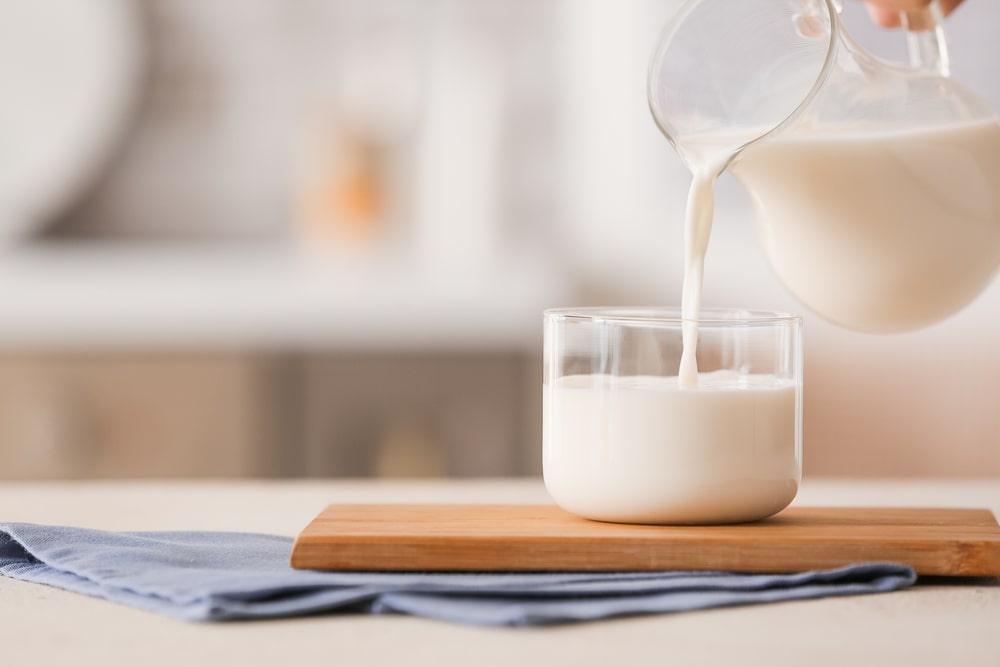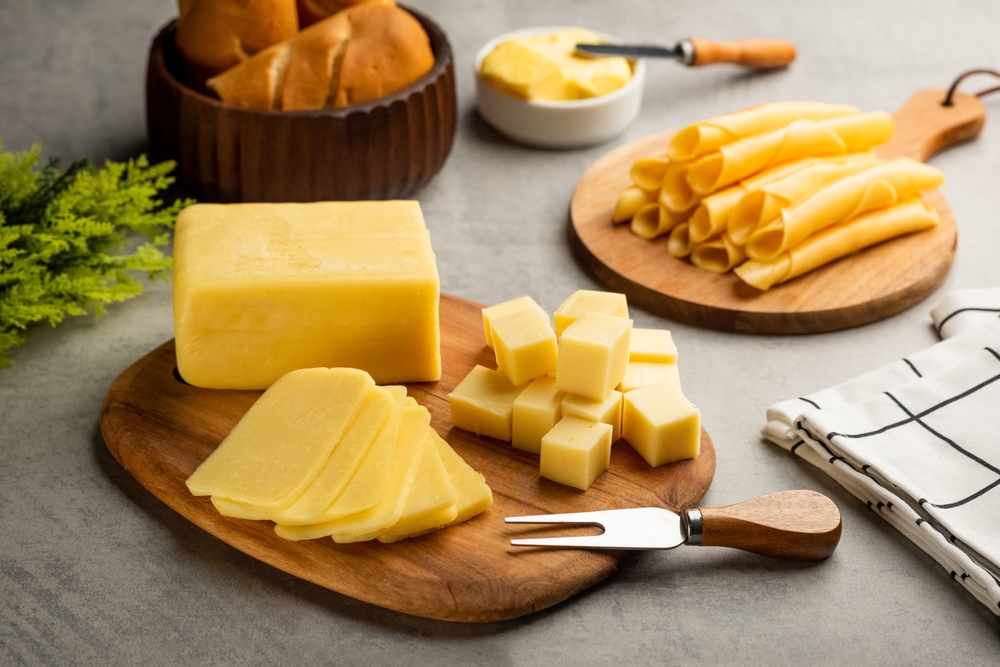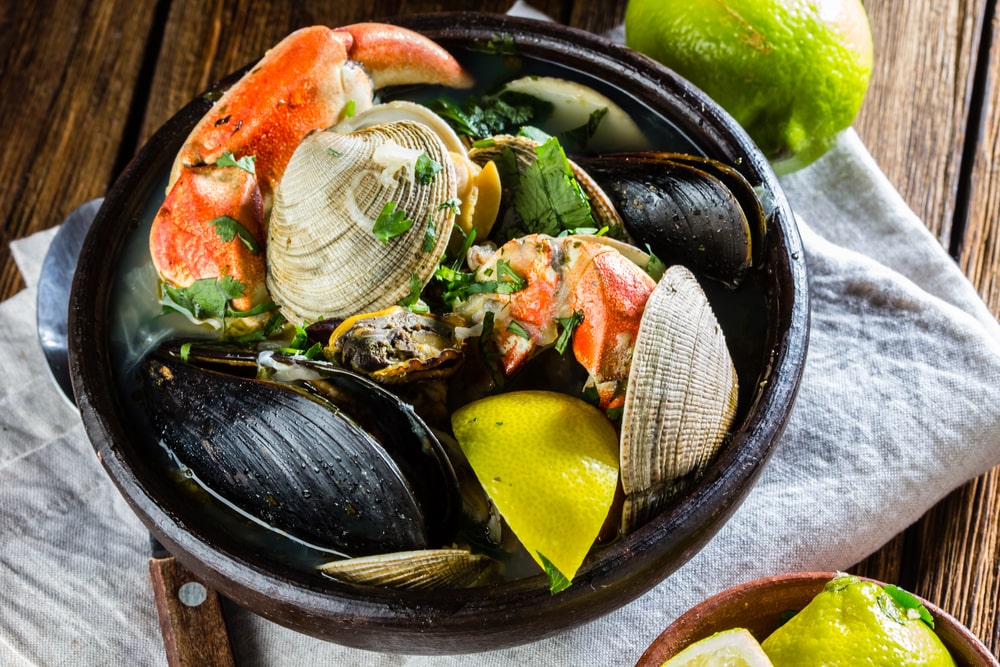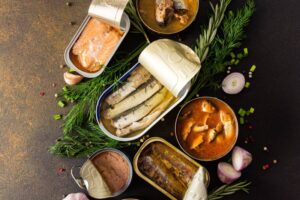Which are the foods you should never freeze?
A surprising number of foods can be frozen, and it depends very much on how you’ll be cooking them once defrosted. For instance, fried foods can get pretty soggy in the freezer, but if you reheat them in an air fryer or in a cast iron skillet, they will actually be just as crispy as they were freshly fried.
But not all foods can be stored in the freezer. Due to how freezing affects their consistency or flavor and their chemical makeup, there are a bunch of specific foods that just don’t freeze well—and could cost you money and time if you freeze them by mistake.
So to help avoid wasting food items and money, here are some foods you should never freeze!

1. Milk and cream
Two of the foods you should never freeze are milk and cream. This is because they may not have the same texture when thawed, which isn’t very appealing. Milk, for instance, will separate into a watery mess.
When it comes to heavy cream, it can also lose some of its cooking abilities. You can still use frozen heavy cream in baking and soups, but you won’t be able to turn it into whipped cream after it has been frozen.
Speaking from experience, chefs say that most foods you should never freeze don’t do well in the freezer because of a safety issue but because of a quality issue.
2. Leafy greens and vegetables
Some chefs argue that there are actually very few foods you should never freeze and that it all comes down to what you’re about to do with them.
For instance, many food items separate or become watery when defrosted. Leafy greens and vegetables like kale, celery, romaine, spinach, and cucumbers are high in water content, so they won’t freeze well if you want to use them in a salad. However, they will be great when used in smoothies.
Cabbage and onions also become very watery when frozen, so they aren’t great for eating raw but are incredible if you caramelize them. In fact, according to experts, they’re easier to cook because of the extra water from freezing.
3. Eggs
Eggs are also among the foods you should never freeze. No matter how low-hassle you want your morning routine to be, if you insist on having eggs (any style) for breakfast, you should never store them in the freezer in advance.
Stick to cooking them right before you want to consume them. Some people swear by frozen breakfast burritos, but here’s what chefs say: life is too short to eat rubbery thawed scrambled eggs. For a quick breakfast burrito, they recommend prepping the ingredients ahead of time and taking some extra minutes to assemble your burrito.
Raw or boiled eggs in their shells are also on the list of foods you should never freeze. Once frozen, the insides expand, which can cause the shells to crack.

4. Cheese
If you’ve doubled up on rounds of camembert or Emmental slices and are wondering about storing extras in the freezer, this could result in crumbly, dry cheese that’s lost all of its flavor. While there may be some exceptions, the general rule of thumb is that freezing cheese will likely change its texture.
If you need to store cheese for a long period of time, the best thing you can do is keep it in the fridge or a cool pantry. If you do opt to freeze it, its best use after thawing is for cooking, as the texture change becomes a moot point after it’s all melted.
5. Avocados
Next on the list of foods you should never freeze is avocado. Just like apples oxidate and become brown after sitting out too long, some food items are simply best fresh, never frozen. Avocados are one of them.
Freeze an avocado, then thaw it, and it will become brown. It’s not just its color that will change, but its texture will too. If you must freeze a dish that is topped with avocado, remove the green fruit before freezing and cut fresh slices for a garnish when you’ll be serving the leftovers.
Read on to discover other foods you should never freeze!
6. Foods you’ve already defrosted
According to chefs, you should never refreeze food that you’ve defrosted unless you cook it first. For instance, if you thought that you’d like to make cheeseburgers but ended up going out with some friends at a restaurant, cook the ground beef into crumbles and incorporate it into another dish.
Experts explain that when food is frozen and then thawed, the cells in it expand and contract, respectively. The result is something with less flavor and a texture that is slightly altered. Moreover, food that wasn’t properly defrosted in the first place or that stayed in the fridge too long will have bacterial growth that will get into the food during the re-freezing process.
According to experts, the best way to freeze foods is to store them in resealable freezer bags (here’s a great option from Amazon), making sure to remove excess air and label them.
7. Fried foods and crumb toppings
As delicious as these foods are when freshly cooked, upon freezing, fried foods or foods with a crumb topping are left without their signature crunch—the thing most of us love about them so much in the first place.
Also among the foods you should never freeze, fried foods and crumb toppings turn into a soggy mess once they’re defrosted. A smarter idea would be to fry or add fresh crumb topping just before cooking and eating any pre-made dishes.
8. Glass bottles
As we all learned at school, liquids will expand upon freezing. So any beverage in glass containers should be stored in the fridge; otherwise, the drink may burst out of its container, causing the glass to shatter or break. The same thing applies to soda cans.
You can only imagine the giant mess that results from something like this (or perhaps you know from experience).
Experts say that some items may have the “not safe to freeze” label because the container they’re sold in isn’t meant for the freezer. If there’s a layer of frost in your freezer, it’s a clear sign that you need to defrost it, which will keep it working efficiently.

9. Shellfish
Lobster, shrimp, and other shellfish aren’t exactly foods you should never freeze because it’s OK to do that. However, you’ll deal with some safety issues when you try to refreeze them after they’ve been defrosted.
In fact, chefs say that shellfish is one of the most delicate perishable items, and it’s best to enjoy it as soon as possible after it’s cooked. Foodborne illnesses can quickly develop if thawed seafood is left at room temperature for even just an hour.
10. Certain spices
Last but not least, on foods you should never freeze, we have spices. Not all of them, though, but there are certain ones that don’t cooperate with the freezer. Paprika and onion will change flavor, curry will develop a musty off-flavor, and celery seasonings will get stronger.
Cloves, pepper, green pepper, and imitation vanilla can also turn strong and bitter when frozen.
If you liked our article on foods you should never freeze, you may also want to read Here’s How to Best Freeze These 7 Foods Like Real Chefs Do.







